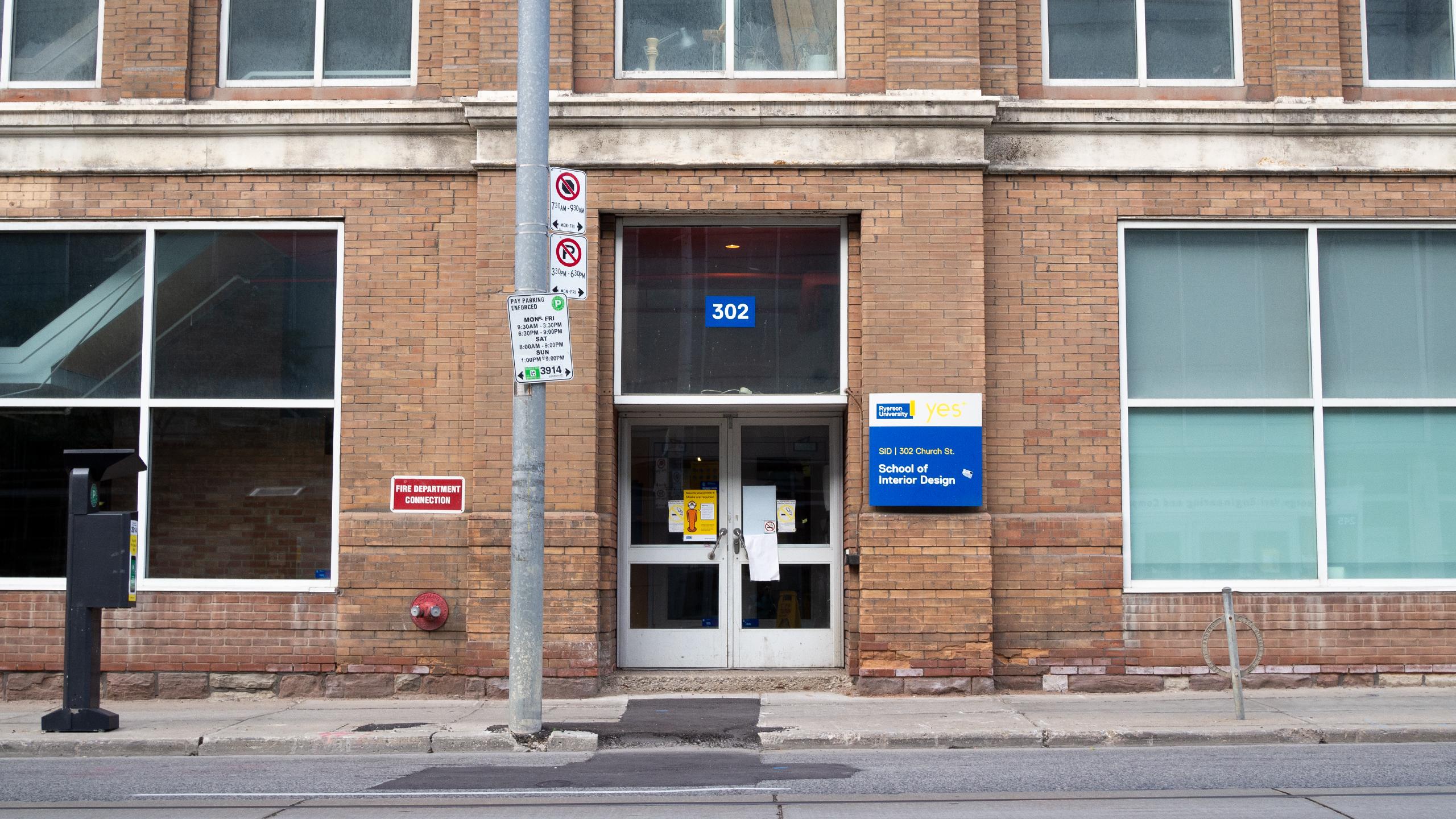By Reedah Hayder
Over 140 students, alumni and faculty members have endorsed an open letter demanding systemic reform in the Faculty of Communication and Design (FCAD) and Ryerson School of Interior Design (RSID). They also demanded the establishment of a new curriculum that encourages diversity.
The letter, which was published on Aug. 31 by the Ryerson School of Interior Design Course Union (RSIDCU), recognizes that the current systems of power and governance in FCAD perpetuate inequities that “disadvantage BIPOC (Black, Indigenous, People of Colour).”
The letter also stated that FCAD currently operates “on exclusion by rejecting…BIPOC voices and their experiences” with a specific “prejudice against darker-skinned members of these racialized groups.”
Georgia Barrington, president of the RSIDCU, said the letter is “in response to the racism and discriminatory complaints that the course union has heard from students.”
Fourth-year interior design student Reese Young, who was involved in writing the letter, said the course union held virtual meetings over the summer to discuss the changes they want to see within FCAD.
“Just as architecture around the world is not [limited to] Eurocentric design, I don’t want my education to be limited to it,” she said.
Ryerson’s 2018 Employee Diversity Self-ID Report surveyed 6,000 employees in the university and 26 per cent of responding full-time faculty members identified as racialized.
“Representation within the RSID faculty is not where it can be,” said Young. “There is and will always be more room for BIPOC representation.”
“Just as architecture around the world is not [limited to] Eurocentric design, I don’t want my education to be limited to it”
Dominique Di Libero, a 2019 graduate from the interior design program at Ryerson, said she wishes for more diversity among the faculty and BIPOC inclusivity training.
“There were times when [students] would be doing projects based on different cultures and it was clear there wasn’t a proper amount of respect,” she said. “Both the professors and students didn’t know how to deal with it.”
Within 12 hours after the letter was published, the collective of writers received an emailed response from Charles Falzon, dean of FCAD.
Falzon will meet with the course union on Sept. 18 to discuss the next steps of reform at FCAD. He said “initiatives from students are opening up communication and [he] wants to invite them in and listen.”
Lois Weinthal, chair of the interior design program, also endorsed the letter. She said she’s glad that students are advocating for a change.
“Over the summer, my colleagues and I were working on a list of changes that need to be made in FCAD,” said Weinthal. “We started looking at courses through the lens of decolonizing them.”
The course union listed seven action items which include hiring more BIPOC faculty, staff and administration, providing anti-racism and BIPOC inclusivity training and including the history and work of BIPOC in RSID curricula.
Along with students and alumni, many professors have also endorsed the letter. Young said it’s heartening to see the support from professors and faculty.
“A lot of the sentiments [described in the letter] ring true not only for the students but also for professors.”
The letter also outlined two lists of expectations, one for next year and another for the next three years.
Barrington said she hopes to “walk through the action plan together and [be able to set] specific deadlines” of when certain action steps should be implemented when members of the course union meet with FCAD.
In June, Benjamin Mitchell, a third-year performance student, started a petition with over 37,000 signatures demanding FCAD to create an action plan to improve racial representation and equity in the faculty. Mitchell is now on the advisory committee for the faculty’s Equity, Diversity and Inclusion (EDI) initiative.
Falzon said implementations of the letter and more diversity are already underway with “new courses, new hires and opening up the curriculum” for a more global perspective that better reflects the student body.
RSID will be adding a new elective — IDE 501, Africa and Beyond: The Decolonization of Design Culture, which will be taught by associate professor Taymoore Balbaa in the winter 2021 semester.
Other students at FCAD are also demanding their schools to implement courses that represent racialized students.
The Ryerson School of Journalism decided to add a new course to its 2020 fall semester called Reporting on Race: The Black community in the Media, after four recent RSJ graduates started a petition demanding more courses covering how to report on matters concerning Black Canadians.
The course is taught by Eternity Martis, an award-winning journalist and editor who focuses on reporting on race and gender.













Leave a Reply